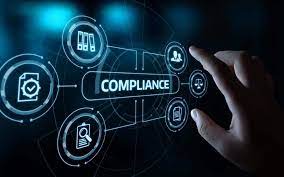2023 was a very significant year for every compliance practitioner and compliance program. While there was a paucity of corporate enforcement actions under the Foreign Corrupt Practices Act (FCPA), there were significant announcements from the Department of Justice (DOJ) which directly impact compliance professionals and compliance programs.
The first came in January and it was update to the Evaluation of Corporate Compliance Programs (2023 ECCP). Next we heard speeches about the increased focus on clawbacks and other areas of consequence management. In October, Deputy Attorney General (DAG) Lisa Monaco introduced a new Mergers & Acquisition Safe Harbor Policy in October. Finally, in late November Acting Principal Deputy Assistant Attorney General Nicole M. Argentieri Delivered remarksat the 39th International Conference on the Foreign Corrupt Practices Act (FCPA) on the use of data analytics in a compliance program and DOJ expectations going forward.
The 2023 ECCP brought forward several new initiatives laid out in the 2020 Update to the Evaluation of Corporate Compliance Programs, include additions and deletions. It also incorporated many of the concepts from the 2022 Monaco Memo. We begin with a review of the new incentives, both financial and non-financial; consequence management; messaging apps and provide a summary for the compliance professional.
In March there were two days of speeches from the DOJ which added to the compliance complexity for 2023 and beyond. The speeches were made by Deputy Attorney General (DAG) Lisa Monaco (2023 Monaco Speech) and Assistant Attorney General Kenneth A. Polite, Jr. (Polite Speech) and they previewed a number of initiatives by the DOJ which every compliance professional needs to study in some detail. These new initiatives included: (1) The Criminal Division’s Pilot Program Regarding Compensation Incentives and Clawbacks; (2) Evaluation of Corporate Compliance Programs; and (3) Revised Memorandum on Selection of Monitors in Criminal Division Matters.
In October 2023, Deputy Attorney General Lisa Monaco announced a new policy regarding M&A. It is a Mergers & Acquisitions Safe Harbor policy that encourages companies to self-disclose criminal misconduct discovered by an acquiring company during the acquisition of a target company. Under the policy, the acquiring party will receive a presumption of criminal declination if it promptly and voluntarily discloses criminal misconduct, cooperates with any ensuing investigation, and engages in appropriate remediation, restitution and disgorgement.
The Safe Harbor policy is a clear continuation of the DOJ’s push for corporate voluntary self-disclosure. Monaco outlined efforts by DOJ to increase the benefits to companies that voluntary disclose corporate misconduct rather than those companies that decide not to disclose misconduct. The key for the acquirer company to obtain the “carrot” DOJ is dangling and poses questions as to the “stick” the DOJ might wield if a self-disclosure does not achieve safe harbor, or more broadly, if an acquirer fails to identify criminal misconduct in the acquisition process, either pre or post-closing. This new Mergers & Acquisitions Safe Harbor Policy clearly demonstrates the DOJ’s interest is to avoid discouraging companies with strong compliance programs from acquiring companies with ineffective compliance programs and/or a history of misconduct. To the contrary, DOJ is seeking to incentivize an acquiring company to timely disclose misconduct uncovered during the M&A process.
In November, Nicole Argentieri, Acting Assistant Attorney General for the Criminal Division, speaking at the ACI National FCPA reported that the DOJ is stepping up its own use of data analytics to identify instances of corporate misconduct, and will boost its cooperation with overseas law enforcement to bring more anti-corruption cases as well. The DOJ and the Securities and Exchange Commission (SEC) are increasingly focusing on data analytics for corporate compliance, signaling higher expectations for larger companies. Both agencies have successfully utilized data analytics in various areas, such as securities and healthcare fraud, and are actively improving their own capabilities in this field. She made several important points for all compliance professionals which will be significant going forward into 2024 and beyond.



